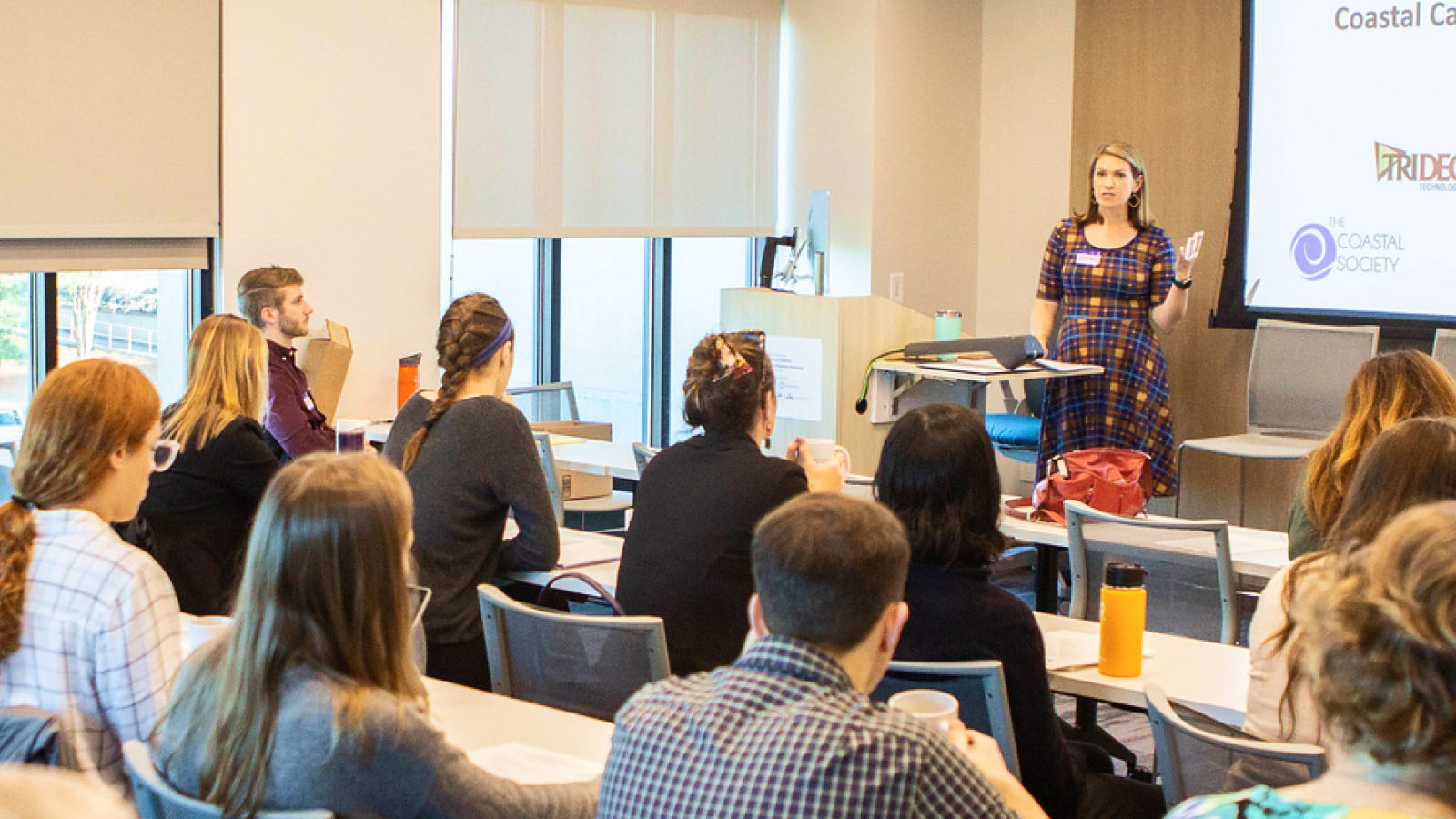Overview
The social sciences are a valuable but often overlooked element of coastal zone management. Issues from marsh restoration to flood mitigation all involve critical human elements— knowledge, values, and attitudes—of the people that live, work, and play in these areas. This training provides the basic knowledge and skills to help coastal managers understand their stakeholders.
The Office for Coastal Management also offers a condensed instructor-led, online version of this course.
Details
Hosts of this training can customize their workshop by selecting one or more of the following social science modules that focus on various disciplines, including understanding stakeholder basics, interviewing for data collection, conducting focus groups, and writing survey questions.
Module 1: Understanding Stakeholders
This module introduces the novice participant to prominent social science disciplines, important social science questions, and ways in which social science can be used to meaningfully and systematically engage stakeholders.
Learning Outcomes
- Recall the major social science disciplines and their applicability to coastal zone management
- Identify and incorporate behavioral considerations from the social sciences in defining a problem
- Conduct a stakeholder analysis
- Evaluate the strengths and limitations of different stakeholder engagement techniques
Duration: 2-4 hours
Module 2: Conducting Interviews
This module provides participants with the knowledge to create an “interview guide” tool and conduct effective interviews that can be used in multiple resource management settings.
Learning Outcomes- Recognize three types of interviews, as well as their purposes, strengths, and limitations
- Construct an interview guide using best practices for question construction and sequencing
- Design and conduct a mock interview, ensuring that all components are included
- Critique mock interviews and identify best practices and common pitfalls for execution of an interview
Duration: 2-4 hours
Module 3: Leading Focus Groups
This module offers the novice user an introduction to the practice of planning and administering focus groups as a research and engagement tool. Participants will achieve a better understanding of the appropriate use of focus groups, as well as best practices and approaches.
Learning Outcomes- Recognize when it is appropriate to use a focus group to gather information
- Identify the strengths and limitations of using a focus group
- Successfully plan and conduct a focus group
- Design and participate in a mock focus group, ensuring that all components are included
- Critique a mock focus group, and identify best practices and common pitfalls
Duration: 2-4 hours
Module 4: Writing Effective Survey Questions
Surveys are a popular information collection tool to help coastal managers understand their stakeholders and quickly assess large populations. Unfortunately, because of their popularity, many people untrained in survey creation administer poorly designed surveys that yield questionable results. This module serves to provide coastal managers with best practices to write more effective survey questions.
Learning Outcomes- Review and critique surveys, and identify common mistakes in question design
- Incorporate 25 best practices when creating survey questions
- Create appropriate question layout and design
- Identify ways to improve survey questions that yield desired data types
Duration: 1.5 hours
Module 5: Analyzing Qualitative Data
This module provides participants with the knowledge and skills to analyze qualitative information from surveys, interviews, and focus groups.
Learning Outcomes- Describe key differences between qualitative and quantitative data types
- Identify and utilize basic approaches of inductive and deductive analyses
- Code, categorize, and sort data
Target audience: Coastal and natural resource managers who conduct applied social science research and stakeholder engagement activities in their work
Duration: 2.5 hours
Professional Credit
American Institute of Certified Planners – 1 to 5 hours (depending on the number of modules attended)
Association of State Floodplain Managers – 1 to 5 hours (depending on the number of modules attended)
Additional Information
NOAA’s Social Science Basics online course provides information on how the social sciences enhance NOAA’s mission.
Social Science Basics for Coastal Managers
- Host Information
- Where and When?
- Review
